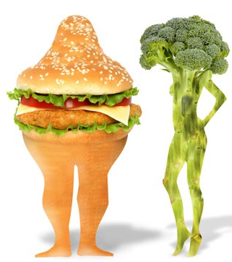We have all heard the expression “you are what you eat”. Research has found this adage to be unequivocally true. When it comes to mental health, researchers have found that what we eat not only affects our physical body but also has a significant impact on our mental state. When investigating foods that negatively affect mental health, there was only one food on which doctors reached a clear consensus. Other foods (think coffee and wine) had too many contradictory studies to definitively place them in the “bad for mental health” category. However, it is undisputed that large amounts of sugar can cause or worsen conditions detrimental to the body and mind.
The typical US citizen eats on average 17 teaspoons of sugar per day, making the US the #1 consumer of sugar in the world[1]. Diets high in sugar have been linked to severe inflammatory disorders which can cause body aches and pains, headaches, cramps, and digestive problems that don’t go away or get better with treatment[2]. This type of unrelenting physical discomfort can cause hopelessness, despondency, and anxiety. This often leads to a spiraling pattern of loss of appetite and sleep which then typically results in reaching for the comfort of sugary substances to mask the mental and physical discomfort. The most alarming studies have shown that sugar consumption is more addictive than cocaine[3]. For some, sugar consumption can cause many of the same addictive and withdrawal symptoms such as paranoia, anxiety, depression, difficulty concentrating, and intense cravings.
So how do we free ourselves from this sugar addiction? There are many sources to look to for advice. Experts recommend a slow and compassionate approach to changing our habits. Below are a few ideas[4]:
- When you feel thirsty, make a habit of first drinking water. A 12-ounce can of soda has 8 teaspoons of sugar. Diet sodas containing aspartame are also dangerous to one’s brain and should be avoided (we’ll need another blog on that one!). Try to find beverages with less sugar, artificial sweeteners, or nothing at all. Ease your taste buds off sugar over time. Someday, your go-to drink might be sparkling water with a twist of lemon.
- Reduce the amount of sugar you add to foods like pancakes, cereal, tea, and coffee. Start by cutting the amount of sugar by half and gradually reduce it from there.
- Use fresh (cherries, bananas, or strawberries) in cereal instead of adding sugar.
- Eat foods that contain natural sugars like fruits. If the fruits are canned, choose those in water or natural fruit juice instead of syrup and synthetic juice.
- Choose food products that contain low amounts of sugars. Just because there is no sugar on the ingredient list, doesn’t mean the product doesn’t have sugar. Below is a list of some of the most common types of alternative names for sweeteners. Look for these ingredients and try to avoid products that use them:
- Evaporated cane juice
- Sucrose, dextrose, maltodextrin, dextrin
- High fructose corn syrup (HFCS)
- Brown rice syrup, malt syrup, date syrup
- Barley malt
- Galactose, glucose, fructose
- The above tip is especially true for condiments. Read the labels carefully. Barbeque sauce, ketchup, salad dressings, and other types of condiments are often loaded with hidden sugars.
- Use less sugar when baking. Cutting the amount of sugar suggested in the recipe by a third will not often make a big difference in taste. Or try substituting applesauce for sugar.
- Replace sugar with spices to entertain your tastebuds with other flavors. Plus, spices are good for your body! They’re packed with nutrients like calcium, fiber, iron, magnesium, and vitamins like C, K, and A.
- For a sweet treat try grilling or baking fruit. Grilling or roasting brings out the sweetness in fruits. Add them to desserts or enjoy them all by themselves; try baked apples, poached pears, or grilled pineapple.
Most of us would gain a greater sense of health and wellbeing by reducing the amount of sugar we consume. Pick one or two of the strategies from the list above and begin your journey towards greater physical and mental wellness today.
Other sources[5].
[1] https://www.healthyfoodamerica.org/sugartoolkit_overview;
[2] Scientific Reports: “Sugar intake from sweet food and beverages, common mental disorder and depression: prospective findings from the Whitehall II study.”
[3] PLOS ONE: “Intense Sweetness Surpasses Cocaine Reward.”
[4] https://www.heart.org/; https://www.healthline.com/; https://www.webmd.com/;
[5] American Heart Association: “How much sugar is too much?”, “Sugar 101: Naturally Occurring Sugars and Added Sugar.”, “Tips for Cutting Down on Sugar.”
BJM Open: “Ultra-processed foods and added sugars in the US diet: evidence from a nationally representative cross-sectional study.”
Cambridge University Press: “Dietary pattern and depressive symptoms in middle age.”
